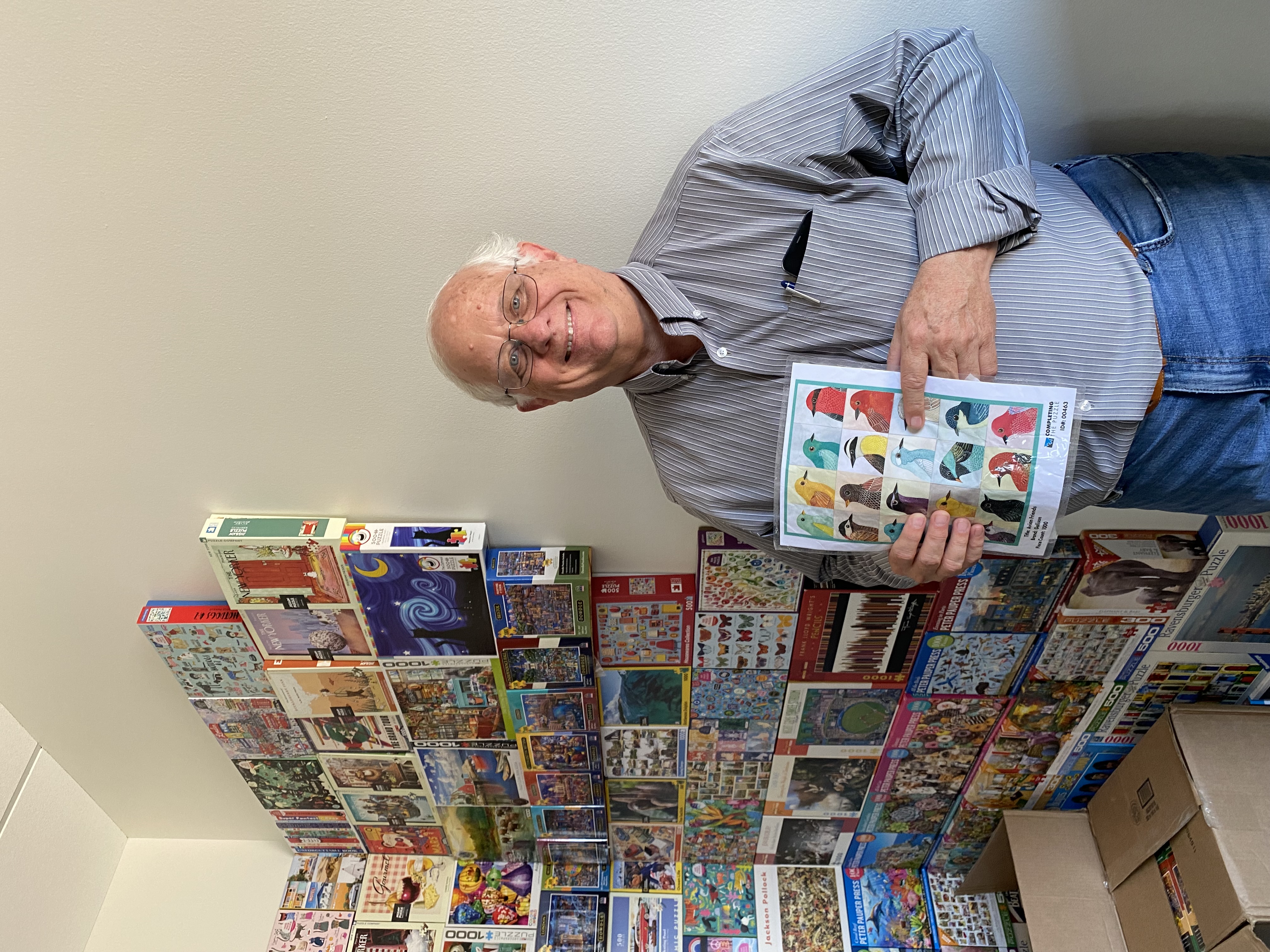Can jigsaw puzzles benefit people with Alzheimer’s disease? Research suggests that there may be several benefits of puzzles for seniors that may enhance the quality of life for those with Alzheimer’s. For World Alzheimer’s Month, we’re diving into the benefits of jigsaw puzzles below.
Plus, we’re highlighting some awesome puzzle-based fundraisers that raise money for Alzheimer’s research. Keep reading!
Working with puzzle pieces that come in a variety of shapes and colors challenges the brain and strengthens short-term memory. In fact, working on a puzzle exercises the same part of the brain where memories are stored.
It makes sense when you think about the process of putting together a puzzle. As you work your way through all of the pieces, you have to remember their sizes, shapes, and colors to make correct connections.
For those with Alzheimer’s, working on a puzzle is a great mental workout that may strengthen their short-term memory while they’re having fun.

Did you know that according to experts, around 40% of people with Alzheimer’s Disease also suffer from depression? Depression can lead to apathy, withdrawal from social activities, isolation, impaired thinking, and other side effects.
Putting together a puzzle is proven to boost moods. Every single time you make a connection, your brain releases dopamine, which is known as the “happy hormone.” Dopamine can not only improve your mood but also enhance memory and concentration.
Working on a puzzle can also become a fun social activity for seniors. When they do it in a group, they get the benefits of social engagement and feel less isolated.
Alzheimer’s is a type of dementia, and recent studies reveal a potential connection between puzzles and dementia risk.
This 2023 study in Australia found that adults over 70 years old who participated in stimulating activities had a reduced dementia risk. One of those activities? Working on a puzzle.
While puzzles cannot prevent dementia, another study found that doing puzzles on a regular basis may delay the onset of dementia symptoms.

We love being part of the puzzling community because it’s a community that gives back. In 2017, puzzler Leslie Mallery began organizing the Longest Day Puzzle Palooza to benefit the Alzheimer’s Association.
The event is held on the Saturday in June that’s closest to the Solstice, aka the longest day of the year. Every year, participants gather in either Iowa or Minnesota and puzzle from sun up to sun down.
This year, they gathered at Minnesota Veteran’s Home, where they worked on the puzzles with veterans and the general public. In nine years, they’ve raised $66,000 for the Alzheimer’s Association.
Want to get involved? Stay tuned to the website for more details! You can also make your own donation to the Alzheimer’s Association.
The benefits of working on a puzzle are endless, especially for seniors and those with Alzheimer’s disease. The best part is that puzzling is a wonderful social activity that the whole family can do together.
When you gift the seniors in your life a Completing the Puzzle membership, you also gift them countless memories and good times. Check out our membership options here.